Flowers have been an integral part of human culture for centuries, often used to express emotions, celebrate special occasions, and decorate spaces. However, recent studies have shown that flowers play a significant role in mental health and wellbeing. The positive effects of flowers on mental health have been observed in various settings, including hospitals, workplaces, and homes.
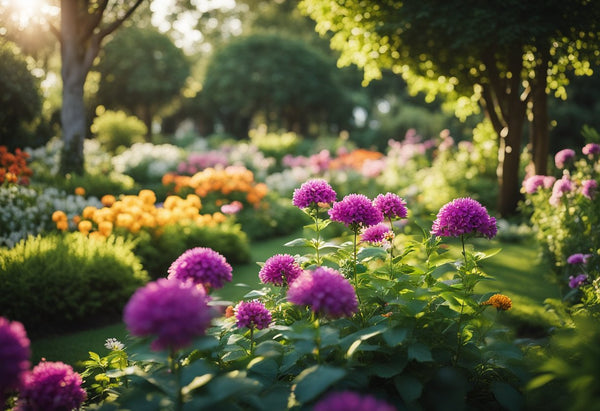
Research has shown that exposure to flowers can reduce stress, anxiety, and depression, and improve mood and overall wellbeing. The presence of flowers in a room can also enhance creativity and productivity, and promote feelings of calmness and relaxation. The scent of certain flowers, such as lavender and jasmine, has been found to have a particularly calming effect on the mind and body.
Given the potential benefits of flowers on mental health and wellbeing, it is important to understand how to incorporate them into daily life. Whether it's through gardening, buying fresh flowers for the home, or simply taking a walk in a flower-filled park, there are many ways to incorporate the beauty and therapeutic effects of flowers into one's life.
Historical Significance of Flowers in Human Culture
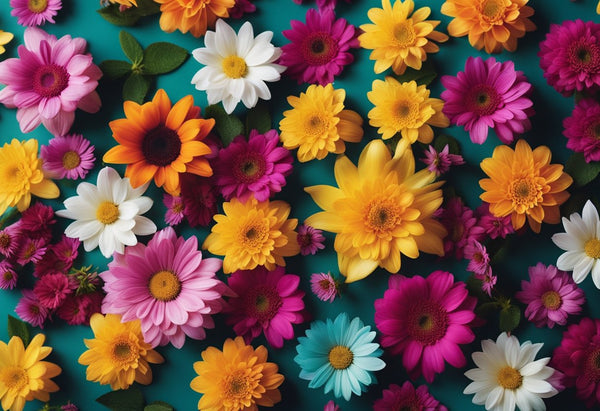
Ancient Practices and Beliefs
Flowers have been an integral part of human culture for thousands of years. In ancient times, flowers were used for medicinal purposes, spiritual practices, and as offerings to gods and goddesses. The Egyptians, for example, believed that flowers had healing properties and used them in their medicinal practices. They also used flowers in their religious ceremonies, believing that they were gifts from the gods.
In ancient Greece, flowers were associated with various deities and were used in religious ceremonies. They were also used in poetry and literature, where they were often used as symbols of beauty, love, and purity.
Floral Symbolism Across Civilizations
Flowers have also played a significant role in the symbolism of various civilizations. For example, the rose has been a symbol of love and beauty in Western culture for centuries, while the lotus flower is a symbol of purity and enlightenment in Eastern cultures.
In Japan, the cherry blossom is a symbol of the transience of life, while the chrysanthemum is a symbol of longevity and good luck. In India, the lotus flower is a symbol of purity and spiritual enlightenment, while the marigold is associated with the sun and is used in religious ceremonies.
Overall, flowers have played a significant role in human culture throughout history. Their beauty, fragrance, and symbolism have made them a beloved part of our lives, and their therapeutic properties have been used to promote mental health and wellbeing for centuries.
Psychological Effects of Flowers
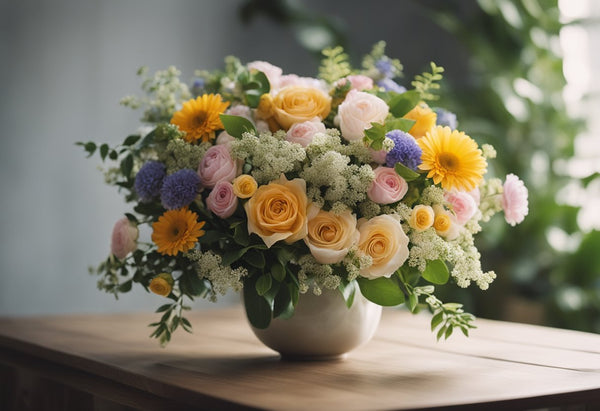
Flowers have been used for centuries as a means of communication, decoration, and to evoke emotions. Research has shown that flowers have a positive impact on mental health and wellbeing. In this section, we will explore the psychological effects of flowers.
Color Psychology and Flower Choice
Color psychology is the study of how colors affect human behavior and emotions. Different colors have different meanings and can evoke different emotions. The color of flowers can have a significant impact on a person's mood and emotions. For example, red flowers are associated with love and passion, while yellow flowers are associated with happiness and joy.
When choosing flowers for mental health and wellbeing, it is important to consider the color of the flowers. If a person is feeling sad or anxious, they may benefit from flowers with warm colors such as red or orange. If a person is feeling stressed or overwhelmed, they may benefit from flowers with cool colors such as blue or green.
Scent and Emotional Responses
Scent is another important factor when it comes to the psychological effects of flowers. The olfactory system is closely linked to the emotional center of the brain, which means that certain scents can evoke specific emotions. For example, the scent of lavender is associated with relaxation and can help reduce anxiety.
When choosing flowers for mental health and wellbeing, it is important to consider the scent of the flowers. If a person is feeling stressed or anxious, they may benefit from flowers with a calming scent such as lavender or chamomile. If a person is feeling tired or sluggish, they may benefit from flowers with an energizing scent such as peppermint or eucalyptus.
In conclusion, the color and scent of flowers can have a significant impact on a person's mood and emotions. When choosing flowers for mental health and wellbeing, it is important to consider these factors to ensure the best possible outcome.
Therapeutic Benefits of Horticulture
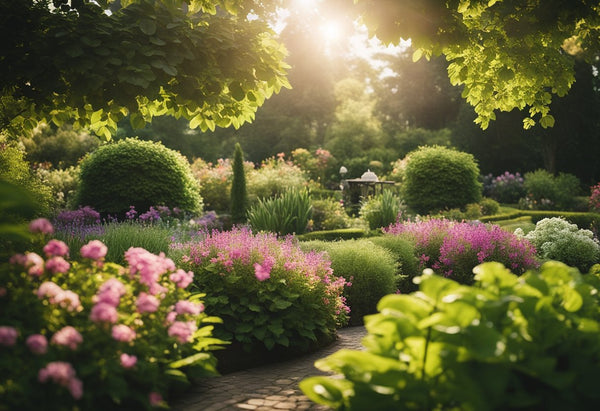
Gardening as a Mindfulness Practice
Gardening is a form of horticulture that can be used as a mindfulness practice. Mindfulness is the practice of being present in the moment and focusing on the task at hand. Gardening requires attention to detail and a focus on the plants and their needs. This can help to reduce stress and anxiety by providing a sense of purpose and accomplishment.
In addition to reducing stress, gardening can also improve mood and increase feelings of happiness. The act of planting and nurturing plants can provide a sense of connection to nature and the environment, which can be beneficial for mental health.
Impact on Stress Reduction and Recovery
Research has shown that gardening can have a positive impact on stress reduction and recovery. A study published in the Journal of Health Psychology found that gardening can reduce cortisol levels, which are associated with stress. Another study published in the Journal of Therapeutic Horticulture found that gardening can improve mood and reduce symptoms of depression.
Gardening can also be a form of physical activity, which can have additional benefits for mental health. Exercise has been shown to reduce symptoms of anxiety and depression and improve overall wellbeing.
Overall, horticulture can be a beneficial practice for mental health and wellbeing. Gardening as a mindfulness practice and its impact on stress reduction and recovery are just a few of the therapeutic benefits that can be gained from this activity.
Floral Therapy in Clinical Settings
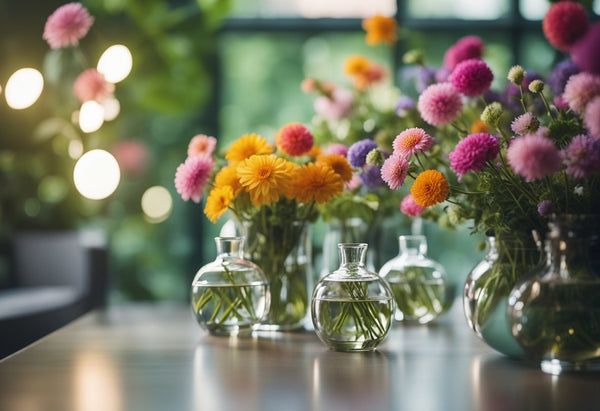
Floral therapy, also known as flower therapy, is a complementary therapy that involves using flowers and their essences to promote physical and emotional wellbeing. This therapy has gained popularity in recent years due to its effectiveness in treating various mental health conditions. In clinical settings, floral therapy is used in a variety of ways to support patients' mental health and wellbeing.
Flower Therapy in Psychotherapy
In psychotherapy, floral therapy is used as a complementary treatment to traditional therapy methods. It involves using flower essences to help patients manage their emotions and promote relaxation. Flower essences are made by infusing flowers in water and then diluting the solution. These essences are believed to contain the healing properties of the flower and can be used to treat a variety of emotional and mental health conditions.
Floral therapy is often used in conjunction with talk therapy to help patients connect with their emotions and gain a deeper understanding of themselves. It can also be used to help patients manage anxiety, depression, and other mental health conditions.
Hospitals and Healing Environments
In hospitals and other healing environments, floral therapy is used to create a calming and soothing environment for patients. Flowers and plants have been shown to have a positive effect on patients' mental health and wellbeing, which is why they are often used in hospital settings.
In addition to their calming effect, flowers also have a positive effect on patients' physical health. Studies have shown that patients who are surrounded by flowers and plants have lower blood pressure and heart rate, which can lead to faster healing times.
Overall, floral therapy is a valuable tool in clinical settings for promoting mental health and wellbeing. Whether it's used in psychotherapy or in hospitals and healing environments, flowers have the power to promote relaxation, reduce stress, and improve patients' overall wellbeing.
Flowers in Everyday Life and Wellbeing
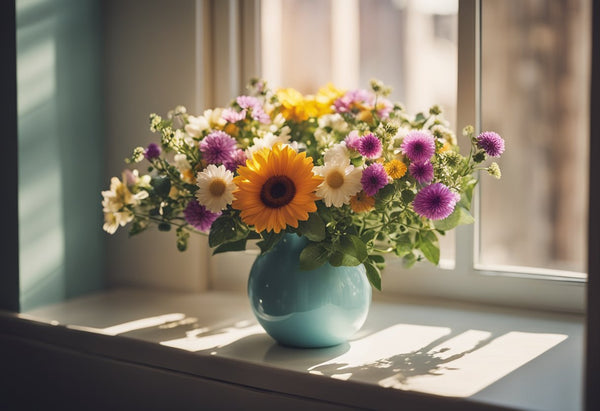
Flowers have been used for centuries to enhance mental health and wellbeing. They are known to have a calming effect on the mind and can help reduce stress and anxiety. In this section, we will explore the role of flowers in everyday life and how they can contribute to overall wellbeing.
Indoor Flowers and Mental Health
Indoor flowers can have a significant impact on mental health. They can improve air quality, reduce stress, and increase productivity. Studies have shown that indoor plants can help reduce the symptoms of anxiety and depression, making them an excellent addition to any home or office.
Some of the best indoor flowers for mental health include lavender, jasmine, and peace lilies. Lavender has a calming effect on the mind and can help reduce stress and anxiety. Jasmine is known for its relaxing properties and can help improve sleep quality. Peace lilies are excellent for improving air quality and can help reduce symptoms of allergies and asthma.
Flowers in Workspaces and Productivity
Flowers can also have a positive impact on productivity in the workplace. They can help reduce stress and increase focus and creativity. Studies have shown that workers in offices with plants and flowers are more productive and have higher job satisfaction.
Some of the best flowers for workspaces include orchids, succulents, and daisies. Orchids are known for their calming properties and can help reduce stress in the workplace. Succulents are low-maintenance and can improve air quality. Daisies are excellent for boosting creativity and can help improve mood and energy levels.
In conclusion, flowers can have a significant impact on mental health and wellbeing. They can improve air quality, reduce stress and anxiety, and increase productivity. Incorporating flowers into everyday life can be an easy and effective way to improve overall wellbeing.
Cultural and Social Aspects of Flowers
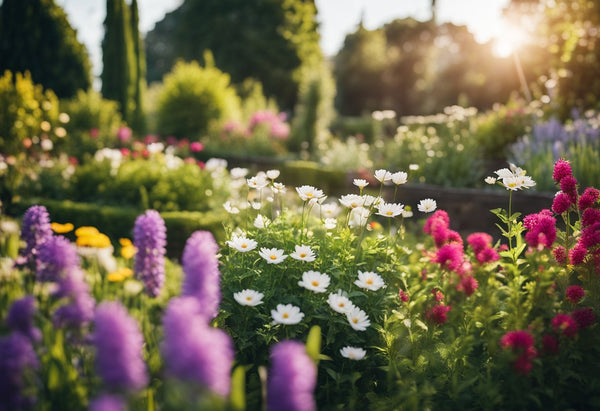
Flowers in Social Interactions
Flowers have played a significant role in social interactions across cultures and time periods. They have been used as gifts to express love, appreciation, condolences, and congratulations. In fact, studies have shown that receiving flowers can increase positive emotions and social connections between individuals.
In social gatherings and events, flowers are often used to decorate the space and create a welcoming atmosphere. They can also serve as conversation starters and help to break the ice in social situations. Additionally, the act of giving and receiving flowers can create a sense of reciprocity and strengthen social bonds.
Cultural Events and Mental Health
Flowers also play an important role in cultural events and traditions that can have a positive impact on mental health and wellbeing. For example, the Japanese practice of Hanami, or flower viewing, involves gathering with friends and family under blooming cherry blossom trees to appreciate their beauty. This tradition has been shown to reduce stress and improve mood.
Similarly, the Hindu festival of Holi involves the throwing of brightly colored flower petals, which is believed to symbolize the triumph of good over evil. This celebration can promote feelings of joy, unity, and positivity.
Overall, the cultural and social aspects of flowers demonstrate their ability to enhance social interactions and promote mental wellbeing.
Research and Studies
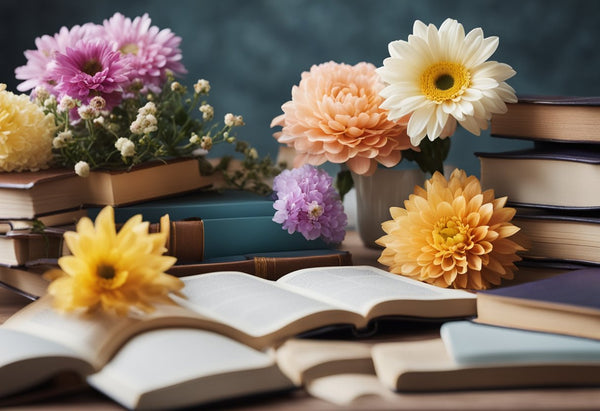
Empirical Evidence on Flowers and Wellbeing
Research has shown that flowers have a positive impact on mental health and wellbeing. A study conducted by Rutgers University found that flowers can reduce stress and anxiety levels in individuals who are exposed to them. The study also concluded that flowers can improve mood and increase feelings of happiness and life satisfaction.
Another study conducted by the University of North Florida found that flowers can improve cognitive performance and memory retention. Participants in the study who were exposed to flowers during a memory task performed better than those who were not exposed to flowers.
Limitations and Future Research Directions
While there is evidence to support the positive impact of flowers on mental health and wellbeing, there are limitations to the current research. Many studies have been conducted with small sample sizes, limiting the generalizability of the findings. Additionally, there is a lack of research on the long-term effects of exposure to flowers on mental health and wellbeing.
Future research should focus on addressing these limitations by conducting larger studies with more diverse populations. Longitudinal studies can also be conducted to examine the long-term effects of exposure to flowers on mental health and wellbeing. Furthermore, research can be conducted on the specific types of flowers and their effects on mental health and wellbeing.
In conclusion, while there are limitations to the current research, the empirical evidence suggests that flowers have a positive impact on mental health and wellbeing. Further research can help to better understand the mechanisms behind this impact and how it can be utilized in mental health treatment and prevention.
Practical Tips for Incorporating Flowers into Daily Life
Incorporating flowers into daily life can be a simple yet effective way to improve mental health and wellbeing. Here are some practical tips for doing so:
-
Buy fresh flowers regularly: Buying fresh flowers and placing them in a prominent location at home or work can help to improve mood and reduce stress. Choose flowers with colors that you find calming or uplifting.
-
Grow your own flowers: Gardening is a great way to reduce stress and improve mental health. Consider growing your own flowers either indoors or outdoors. This can be a rewarding and enjoyable hobby.
-
Use floral essential oils: Floral essential oils such as lavender, rose, and jasmine can have a calming and relaxing effect on the mind and body. Use them in a diffuser or add a few drops to a warm bath.
-
Take a flower arranging class: Learning how to arrange flowers can be a fun and creative way to incorporate them into daily life. Consider taking a class or watching tutorials online to learn new techniques.
-
Visit a flower garden: Visiting a flower garden can be a peaceful and rejuvenating experience. Take a stroll through a nearby garden or park and take in the beauty of the flowers.
Incorporating flowers into daily life can be a simple yet effective way to improve mental health and wellbeing. By following these practical tips, individuals can enjoy the many benefits that flowers have to offer.
Frequently Asked Questions
What psychological effects do flowers have on mental health?
Flowers have been found to have a positive impact on mental health and wellbeing. They have been shown to reduce stress, anxiety, and depression, as well as improve mood and cognitive function. The sight and smell of flowers can evoke positive emotions and memories, which can help to reduce negative thoughts and feelings.
How can flowers contribute to anxiety and depression relief?
The presence of flowers can help to reduce anxiety and depression by providing a calming and soothing environment. The scent of flowers has been found to have a direct impact on the brain, helping to reduce stress and improve mood. Additionally, the act of caring for and nurturing plants can provide a sense of purpose and accomplishment, which can help to boost self-esteem and reduce feelings of hopelessness.
Which specific flowers are known to improve mental wellbeing?
Several types of flowers have been found to have therapeutic benefits for mental health, including lavender, chamomile, jasmine, and rose. Lavender has been found to have a calming effect on the nervous system, while chamomile can help to reduce anxiety and promote relaxation. Jasmine has been found to have a positive impact on mood and cognitive function, while rose has been found to have a calming effect on the mind and body.
What does research suggest about the therapeutic benefits of flowers?
Research has shown that the presence of flowers can have a positive impact on mental health and wellbeing. Studies have found that flowers can help to reduce stress, anxiety, and depression, as well as improve mood and cognitive function. Additionally, the act of caring for and nurturing plants can provide a sense of purpose and accomplishment, which can help to boost self-esteem and reduce feelings of hopelessness.
How are flowers used in promoting mental health awareness?
Flowers are often used in mental health awareness campaigns to promote the importance of self-care and mental wellbeing. They are also used in therapeutic settings, such as hospitals and mental health clinics, to create a calming and soothing environment for patients. Additionally, the act of giving and receiving flowers can help to promote positive emotions and social connection, which can help to improve mental health and wellbeing.
Can the presence of flowers in one's environment influence their mood and stress levels?
Yes, the presence of flowers in one's environment can have a direct impact on mood and stress levels. Studies have found that the sight and smell of flowers can evoke positive emotions and memories, which can help to reduce negative thoughts and feelings. Additionally, the act of caring for and nurturing plants can provide a sense of purpose and accomplishment, which can help to boost self-esteem and reduce feelings of hopelessness.
